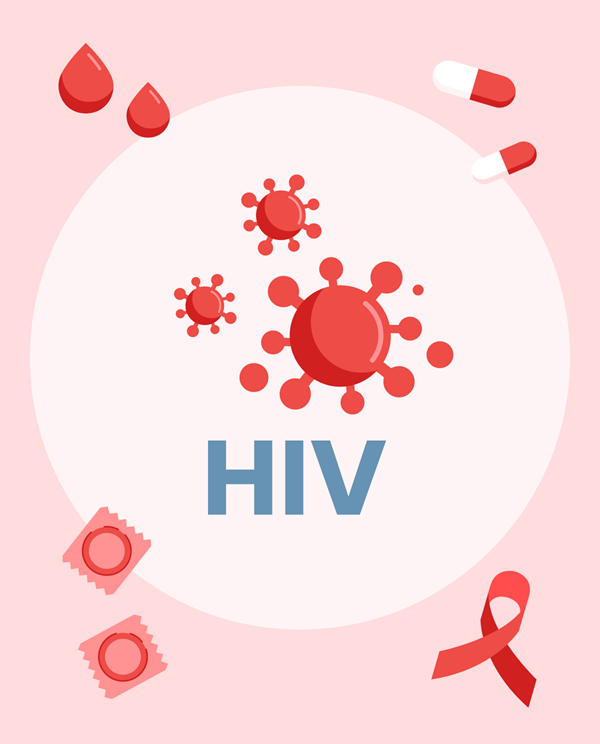
The Ministry of Health and Social Welfare has reaffirmed its commitment to addressing the dual challenges of non-communicable diseases (NCDs) and HIV in Nigeria.
Director of public health in the ministry, Dr. Anyaike Chukwuma made this commitment during the first annual APIN Public Health Initiative Symposium in Abuja, themed “Integrating Non-Communicable Diseases and HIV to ensure long and quality lives for Persons living with HIV (PLHIV)”.
Chukwuma outlined a four-point agenda, emphasising a holistic approach to governance, capacity development, health system strengthening and financial measures. He stressed the importance of collective engagement and expert contributions to ensure a healthier and higher-quality life for PLHIV in the country.
Special adviser to the president on health, Dr. Salma Anas-Kolo acknowledged APIN’s pivotal role in HIV care over 23 years. Anas-Kolo highlighted the need for global integration and societal collaboration in HIV-related initiatives, emphasising the burden of non-communicable diseases and their additional costs associated with HIV infection.
Addressing the symposium, acting team lead for NCD at WHO Africa’s regional office, Dr. Barango Prebo emphasised the significance of hypertension as an NCD risk factor in Africa. Prebo expressed concern about the high prevalence affecting 1 in 3 adults, with 80 per cent unaware or not receiving treatment, emphasising the need for increased awareness and healthcare services. He pointed out distinctive challenges in Africa, such as the highest burden of cervical cancer among NCDs. Discussing Nigeria’s challenging position with NCDs, Prebo noted that premature NCD rates are at over 70 per cent, emphasising the broader impact on the population beyond the poor due to limited access to treatment and healthcare services.
He underscored the urgent need for improved healthcare infrastructure in the region. Prebo highlighted the challenge of aligning medication distribution, especially for HIV and adjuncts like Atenol, across different time frames, stressing the importance of systematic monitoring. While acknowledging integration efforts and the role of the WHO Committee on Essential Medicines, he raised concerns about restrictions on nurses at peripheral health facilities, indicating the necessity for healthcare system reforms and expanded roles for professionals. Discussing decentralisation and integration, he emphasised that strengthening policy levers is crucial for effective decentralised and integrated care.
He stressed the need for a comprehensive approach to address premature mortality from NCDs, emphasising targeted policies and interventions based on insights from the prevalence of key NCDs and their risk factors among individuals dealing with HIV. Recognising comorbidities as often overlooked challenges, he highlighted the importance of considering mental health, given its direct impact on treatment outcomes. He underscored the stress associated with HIV diagnosis and the correlation between mental health and sexual behaviours, advocating for a holistic healthcare approach. He emphasised the significance of addressing the gap in reaching key populations for HIV and prioritising mental health services. He advocated for a transformative approach that recognises the individual as a whole, allowing healthcare workers to integrate services effectively and address the double burden and co-morbidities between HIV and NCDs.
“This person-centered strategy,” he noted, “fosters a holistic and comprehensive healthcare model for improved outcomes.” In his opening remarks, board chairman, APIN, Dr. Ayodeji Odutolu underscored the need for the country to factor in other diseases in the HIV and AIDS control programmes because of how they critically impact on HIV and AIDS. Odutolu emphasised the importance of removing stigma when integrating non-communicable diseases in the management of HIV.
CEO of APIN Public Health Initiatives, Dr. Prosper Okonkwo stated that the country should ensure quality lives for people with HIV regardless of co-morbid conditions. Over the years, APIN’s commitment to quality HIV programming has evolved to address the health priorities of its clients.
“APIN is uniquely positioned to (independently and collaboratively) leverage her robust resources, e.g., dedicated workforce, dynamic data management systems, care innovations like AVIVA app for cervical cancer, to ensure optimal quality of life and healthy aging regardless of co-morbid conditions,” he said.
Okonkwo highlighted growing evidence that integrating HIV and NCD services would go a long way toward improving the efficiency and coverage of NCD care. He stressed the critical need to monitor and evaluate the integration delivery of HIV and NCD services to determine the impact on the quality of care. “As HIV therapeutics advance, many of these patients are living into old age, increasing the burden of multimorbidity resulting from the aging phenomenon and possibly HIV infections and therapeutics,” he noted.
APIN is the leading implementing partner of the US Center for Disease Control and Prevention for the implementation of the US President’s Emergency Programme for AIDS Relief (PEPFAR) in Nigeria.
Established in 2000, APIN has evolved to be a fully registered indigenous public health-focused organisation beyond HIV/AIDS, currently serving over 380,000 active PLHIV in five states in Nigeria.

